3 Reasons Why We Don’t Need Research In Acupuncture and Traditional Chinese Medicine (TCM) and 3 Reasons Why We Do
Which camp are you in? Camp No: You don’t think we need research to prove our medicine works, right? After all, we’ve been around and working for over 3,000 years—that’s the best evidence yet! Camp Yes: We do need research to explain and justify our medicine in quantifiable and biomedical terms people are familiar with in the West. I’m going to tell you I am in both camps and why you should camp with me in both areas!
3 Reasons Why We Don’t Need Research In Acupuncture and TCM
One: We have 3,000 years of history with documented clinical evidence on conditions and effective treatments.
If the medicine didn’t work, it wouldn’t still be around now in effective use with over one-third of the world’s population. Enough said.
Two: We use a different language than Biomedicine to look at the body and its operations.
As a result, it is not possible to translate everything accurately in Biomedical terms. In fact, it doesn’t do it justice because we would be missing parts and pieces that are lost in translation, and then we are not looking at TCM and Acupuncture as a whole. By trying to translate we would lose the ability to fully understanding the medicine because things are lost in translation. Furthermore, in trying to explain our medicine using biomedical language, we would miss many pieces of the pie on how this dynamic system works as a whole. It is best to understand each paradigm in its complete whole on its own, rather than breaking it down into parts that will not give us the whole picture. In addition, the modern scientific method is based on a biomedical model of understanding the body as parts and separately functioning systems, which doesn’t necessarily fit the TCM and Acupuncture method of a dynamic interrelated medicine model. They are simply two different paradigms, two different languages addressing the body, and are understood best separately.
Three: There is relevance in Phenomenology, and using the experiences and results of the patient is evidence enough of its own, and valid.
What exactly is Phenomenology? Phenomenology is studied in the sociology world and, in a nutshell, refers to studying the enigma of the living body through the accounts of what was experienced, and by doing so, we experience what Nature “really” is (Rehorick, 1986). Furthermore, Phenomenology can restore, affect, influence and change persons—it transforms and shifts lives—and these transformations are more than mere influence (Rehorick, 2008). When we allow experiences with the unfamiliar, it brings us closer to the idea of a “pure” experience, and in fact, this should be taken into account into any empirical research (Rehorick, 2008). The phenomenologist Zaner argues that failure to acknowledge uncanny experiences is an obstacle to the arousal of self-awareness (Zaner, 1981). We fail to acknowledge phenomenon because the unfamiliar fractures our world. In our normal world, we are dominated by vision and sound. To experience a vibrational energy such as an earthquake or a “De Qi” response, is an alteration of our conventional perception of our world. Our world is now altered. Examples of shielding actions we take to protect ourselves from “perceiving and experiencing” the uncanny, in order to maintain “stability and integrity” in our perceived lifeworld are (A) Shielding using scientific explanation—using the finite paradigm of scientific meaning to serve as a bridge between the unfamiliar and the reality everyday life (Shutz, 1971); (B) Shielding by typification—using common sense or past experiences of the familiar to make sense of the unknown (Rehorick, 1986); and (C) Shielding through possibilizing—using what “could have been” to restore one’s balance and “reground” oneself, searching for the possibilities within the limits of the actual to resolve one’s imbalance (Rehorick, 1986). All of the above have the potential for the individual to make assessment errors. If we continue to attend to the parts of perception rather than looking and perceiving as a whole full experience, we will continue to make experience errors (Merleau- Potny, 1962). Phenomenology is simply allowing the perception and experience of the unfamiliar to be a whole and complete experience, without any need for explanation (e.g. shielding) or gathering information and facts from a distance. By embodying a direct, full experience as a source of knowledge, we are accepting the pureness of the experience as valid, and by doing so, we are closer to what true “Nature” of the living body really is. Moreover, by allowing and accepting a full experience and all experiences—yes that means “anecdotal”—we have more accurate “data” from which science can draw, and the more experiential “data” we have, the more “science” can draw from. So in fact, phenomenology is necessary - and where it ends, science begins - and it is the bridge to empirical research. Furthermore, a doctor is not doing their job if they do not listen to all of a patient’s experience.
3 Reasons Why We Do Need Research In Acupuncture and TCM
One: We need to modernize our medicine.
We have new ways in modern biomedicine to be able to explain evidence. Did you know there is a new “sham” acupuncture needle used in some clinical trials that actually feels like a needle is inserted but no needle punctures the skin? What about looking at lab analyses done with herbal medicine examining the active ingredient to help explain its efficacy? We should embrace new technology and analysis measures because these methods of explanation in the scientific method are the more commonly accepted in today’s society and help enhance and deepen our understanding.
Two: It can quantify our results in ways we can’t quantify in the TCM paradigm, and by doing so, provides us another lens into supportive evidence in our medicine.
There are ways we can quantify qualitative data (Tan, 2016). There are also ways we can quantify TCM data in Biomedicine data. Yes, it may still be looking at a piece of our medicine, however, it is more information for that piece. The more information we have, the more likely it will connect with someone who can relate to that information, because that’s the kind of information they understand. If you cannot help them understand, you cannot connect with them at their level. If you cannot connect with them at their level, they are not accepting or engaged in the medicine. If they are not accepting or engaged in the medicine, they will not be supportive of it, or if it’s a patient, they will not continue to invest their time in using TCM and Acupuncture to restore their health.
Three: It helps us bridge the gap between TCM and Western biomedicine.
We can use these pieces of evidence in the biomedical language, to help reach out and connect with a doctor or a patient who only understands biomedical language. By providing them with context and language that they understand, we are possiblizing, in Phenomenology terms, which means we are restoring balance to a world that is unfamiliar to them with the familiar. This creates understanding and further acceptance in their world that would otherwise be unbalanced because of this uncanny “phenomenological experience” that does not make sense not them. Making sense to them makes them feel safer about it and more open and accepting to it. This also relates to point two above. When we now connect with a biomedicine thinker by making them feel safe and accepting of TCM and Acupuncture, they become supportive of it and are willing to invest their time in our medicine to restore health. The door to TCM and Acupuncture has been opened, wider.
Why Be a Proponent of Both Camps?
I believe our medicine is a stand-alone outstanding system. Everyday I am amazed by the magic of this complex and dynamic time-tested medicine. I also believe that in order for us to spread the magic of TCM and Acupuncture more widely, it is important learn the language of biomedicine more effectively, in particular, learn to explain it in their terms. I’m sure some of you are saying, why don’t they learn our language? And some do. However, the vast majority of the North American and European culture operates now in a Biomedicine paradigm. Why fight the giant? Why not work with it? Then you can open the minds and eyes of biomedical health practitioners and patients, and not only bridge the gap of understanding and open the doors to an alternative viable option, but also begin to spread the power of this medicine further into this world. When we cast our net wider, we can help more people.
Join me in being a leader and a voice in both the valid phenomenology of our medicine and the quantifiable research evidence, and pass it on. Start to bridge your own internal gap, and then pass it on to your patients and fellow healthcare colleagues. Open those doors. Open more doors. Spread the magic of Acupuncture and TCM even wider. Widen your net, help even more people restore health, and be part of a ripple effect. After all, that is what we are here for.
Courses By This Teacher
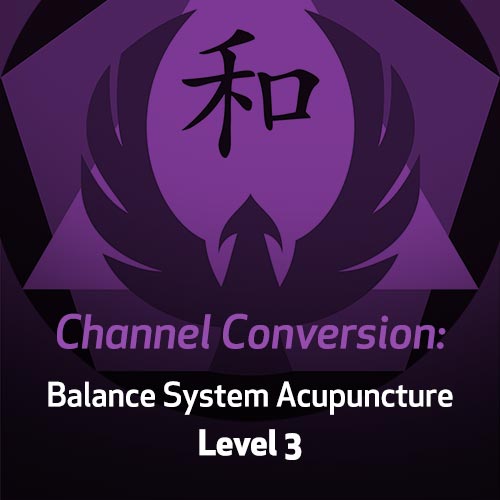
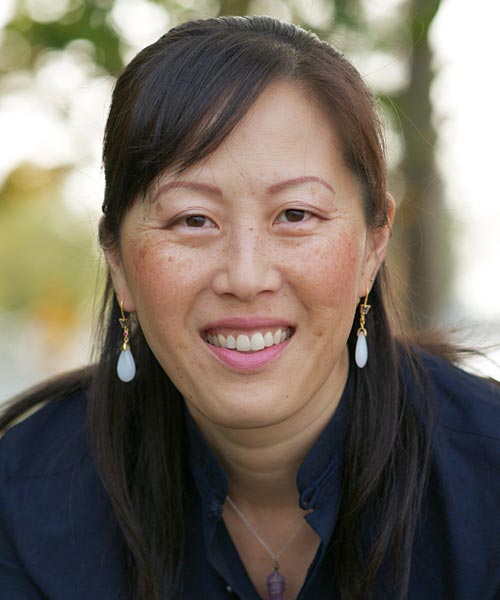
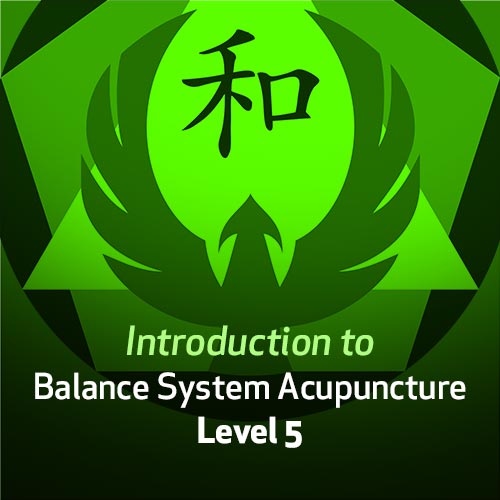

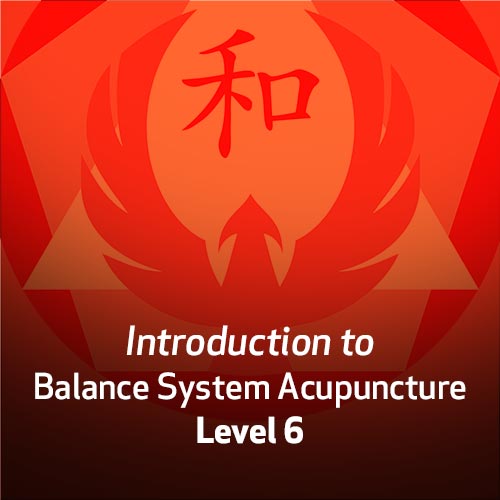

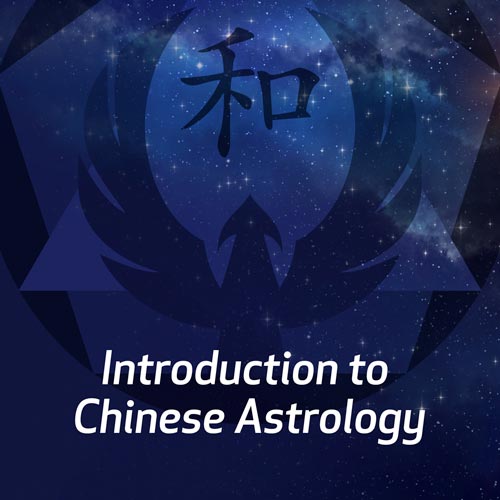

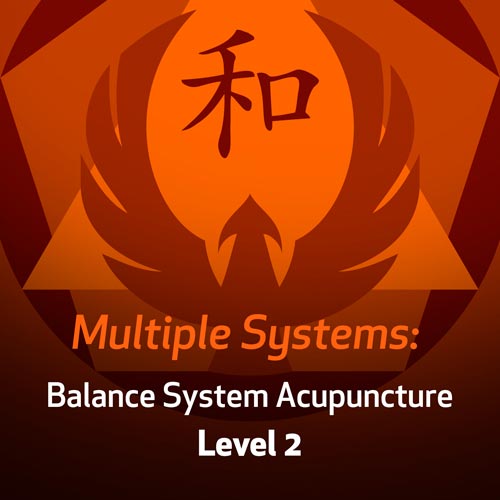

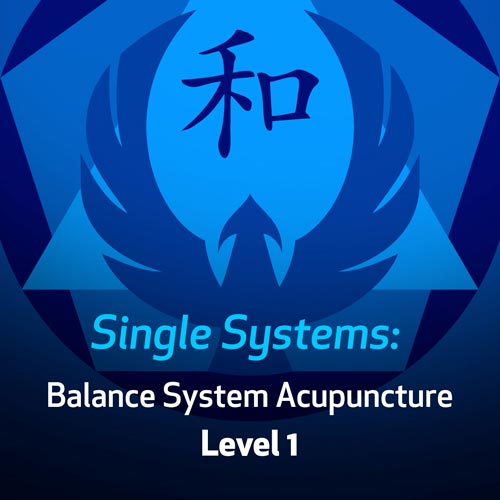

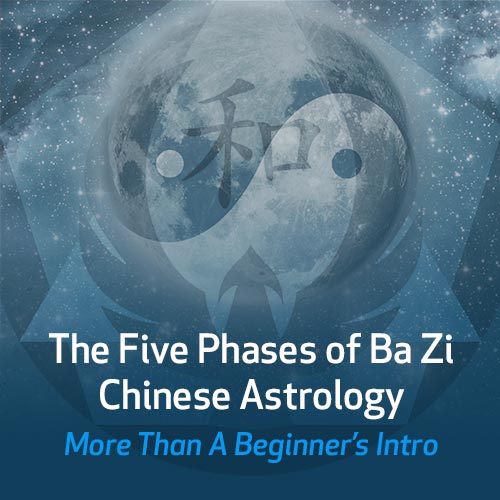
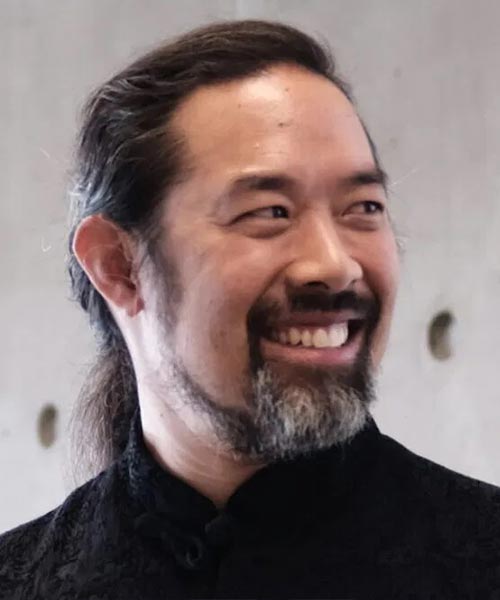

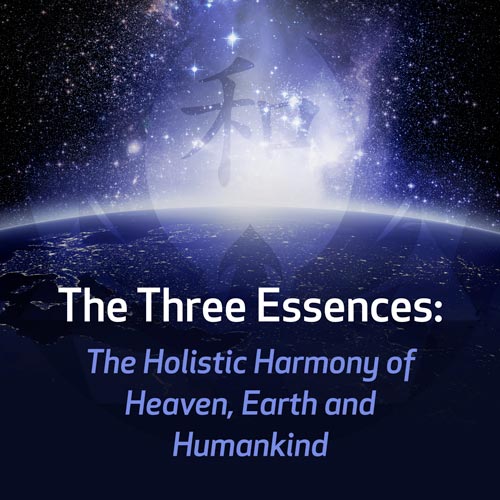

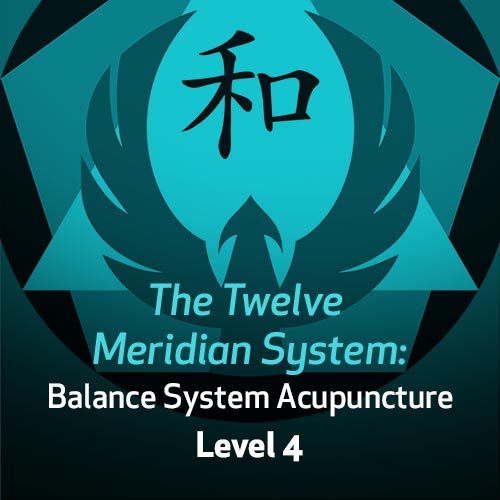

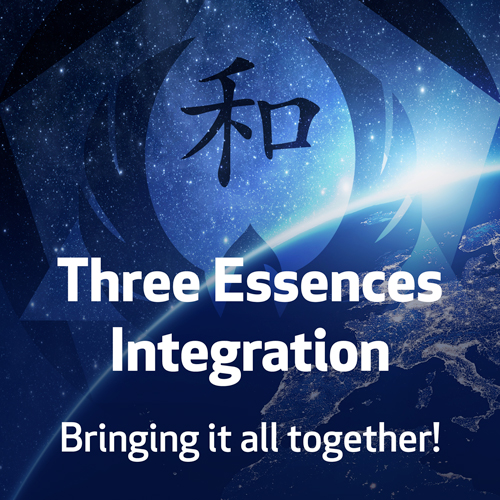

Channel Conversion: Balance System Acupuncture - Level 3
Channel or Meridian Conversion - The start of understanding its use with Yi Jing.
with Sonia Tan
See In StoreOverview
In this abridged advanced course, students will expand their knowledge on the applications of Balance System Acupuncture and discuss a variety of internal syndromes including digestive, respiratory, gynecological and emotional states using “Channel Conversion” and the Yi Jing (I Ching). This class will further explore the relationships of the channels to the Guas of the I Ching and Multiple System balances. By exploring these connections, practitioners will learn how to develop simple treatments that affect the body at a deeper energetic level. The history of Zang-Fu diagnosis used for herbal diagnosis and treatment will be discussed and instruction will be given to teach students how to equate their Zang-Fu diagnosis with a Meridian diagnosis in order to devise effective acupuncture treatments. Finally, there will be discussion on cases of the practical application of Channel Conversion.
PRE-REQUISITE: Single Systems: Balance System Acupuncture Level 1, Multiple Systems: Balance System Acupuncture Level 2.
Learning Objectives
- Demonstrate how to convert one meridian’s hexagram to another meridian’s hexagram.
- Identify which hexagram is associated with each meridian.
- Describe and summarize the history of Balance Acupuncture and the Yi Jing.
- Diagnose and equate a Zang-Fu diagnosis with a channel diagnosis, and devise an acupuncture treatment plan.
- Apply channel conversion to treat complex internal medical conditions.
Your Teacher

Sonia Tan
Dr. Sonia F Tan, DAOM, RAc, RTCMP, has been licensed since 2006. She is a Doctor of Acupuncture & Oriental Medicine (degree), a Registered Traditional Chinese Medicine (TCM) Practitioner, and a professional Chinese Astrology & Feng Shui Practitioner. She is Dr. Richard TF Tan-Gold Level certified.
Categories
Tags
Introduction to Balance System Acupuncture - Level 5
Wu Xing-Five Phases Balance
with Sonia Tan
See In StoreOverview
Whether you are new to Wu Xing - Five Phases/Behaviours Acupuncture, or a previous Balance System Acupuncture Level 5 student, this abbreviated introductory course is a great resource of both new and review information. Students will expand their learning and development of Balance System Acupuncture, describing and understanding the relationship balancing the channels in the context of the Wu Xing - Five Behaviours/Phases and the Yi Jing/I Ching. Example clinical areas of concern will be reviewed with respect to their channel theory, Wu Xing differentiation, and Yi Jing/I Ching hexagram associated, and apply them into a Balance System Acupuncture diagnostic and treatment strategy. Students will examine internal medicine conditions into an appropriate Wu Xing Balance System Acupuncture treatment.
Balance System Acupuncture as taught by Dr. Sonia F. Tan is based on the culmination of her education, research and experience with various teachers including the late Dr. Richard Tehfu Tan, Master Joseph Yu, Dr. Yvonne Farrell and Master Jeffrey Yuen.
PRE-REQUISITES: Single Systems: Balance System Acupuncture Level 1, Multiple Systems: Balance System Acupuncture Level 2, BSA Refresher and Practical (from online entry), Channel-Conversion: Balance System Acupuncture Level 3.
Learning Objectives
- Identify which hexagram is associated with each channel.
- Recognize cases which are applicable to using the I-Ching Five Phases Balance approach.
- Identify which trigrams are associated with the appropriate Five Phase / Element.
- Select and construct a Five Phase / Element hexagram.
- Explain how to convert a channel’s hexagram to a Five Phases hexagram.
Your Teacher

Sonia Tan
Dr. Sonia F Tan, DAOM, RAc, RTCMP, has been licensed since 2006. She is a Doctor of Acupuncture & Oriental Medicine (degree), a Registered Traditional Chinese Medicine (TCM) Practitioner, and a professional Chinese Astrology & Feng Shui Practitioner. She is Dr. Richard TF Tan-Gold Level certified.
Categories
Tags
Introduction to Balance System Acupuncture - Level 6
Balance in the Seasons - AKA Seasonal Balance
with Sonia Tan
See In StoreOverview
In this abbreviated introductory course, students will expand their knowledge and application of the Balance System and discuss Seasonal and annual problems, and Four-Section timing. This is an advanced method of point selection based on the rhythms of nature, the Yi Jing/I Ching and channel theory. Students will expand their understanding of the Yi Jing/I Ching and discuss how we can create a balance in the seasons by using the hexagram of the current season to balance the hexagram associated with an affected channel in order to treat a variety of internal and external disorders. Particular attention will be paid to disorders that are caused or exacerbated by seasonal changes such as allergies, joint pain, muscle aches and certain types of depression. Students will be able to formulate safe and effective therapeutic plans incorporating Balance System Acupuncture.
Participants will be able to apply the concepts immediately in practice and develop effective treatments. The Balance System Acupuncture as taught by Dr. Sonia F. Tan is based on the culmination of her education, research and experience with various teachers including the late Dr. Richard Tehfu Tan, Master Joseph Yu, Dr. Daoshing Ni, Dr. Yvonne Farrell and Master Jeffrey Yuen.
PRE-REQUISITES: Single Systems: Balance System Acupuncture Level 1, Multiple Systems: Balance System Acupuncture Level 2, BSA Refresher and Practical (from online entry), Channel-Conversion: Balance System Acupuncture Level 3.
Learning Objectives
- Identify, select and construct which trigrams are associated with the appropriate Phase / Season.
- Explain how to convert a channel’s hexagram to a Five Phases hexagram for use in a Season.
- Identify and indicate the timing of seasonal cycles of flow.
- Identify which hexagram is associated with each channel.
- Recognize cases which are applicable to using the Seasonal Balance approach.
Your Teacher

Sonia Tan
Dr. Sonia F Tan, DAOM, RAc, RTCMP, has been licensed since 2006. She is a Doctor of Acupuncture & Oriental Medicine (degree), a Registered Traditional Chinese Medicine (TCM) Practitioner, and a professional Chinese Astrology & Feng Shui Practitioner. She is Dr. Richard TF Tan-Gold Level certified.
Categories
Tags
Introduction to Chinese Astrology
An introduction to the basic components of Bā Zì 八字 Chinese Astrology and Feng Shui.
with Sonia Tan
See In StoreOverview
Open the door and scratch the surface into the world of Chinese metaphysics, and the harmony of nature and humankind. Get your feet wet with these pivotal and essential basics of Chinese Astrology and Feng Shui, two important tools for living in the Sān Cái 三才 - Three Essences harmony. Refine and elevate your Five Phase and Yin / Yang knowledge. Set in motion your learning of the language of the Chinese metaphysical world!
This course is an introduction to the basic foundational components of Bā Zì 八字 (Eight Characters) Chinese Astrology, as well as the Five Phases - Wǔ Xíng 五行 basics utilized in both Chinese Astrology and Feng Shui. Learn and explore:
(1) The origins and characteristics of the Five Phases.
(2) The Chinese characters utilized to represent the original segments of time and phases: The 10 Heavenly Stems - Tiān Gān 天干 and the 12 Earthly Branches - Dì Zhī 地支.
(3) Refinement of your knowledge of Yin / Yang theory.
These basics will be practiced, and contextualized in the concept and integration of the Sān Cái 三才 - Three Essences - the unity and harmony of humankind and natural law. Explore these special foundational tools, its application to Astrology and life flow, destiny, and harmony, and learn basic management of these elements.
Take your first step on the journey of Chinese metaphysics, Astrology, Feng Shui, and seeing the world with a new language of integration and harmony!
NOTE: This is not a regular CEU course and course trajectory. The information of Chinese Astrology is sacred and karmic, and must be treated as such. In order to preserve the sacred integrity of the information, knowledge and the Tan lineage, Dr. Sonia Tan will be requiring some homework in order to move on to the higher levels. There is no proper singular reference book, nor are notes given. Students will be asked to take hand-written notes to encourage muscle memory when learning to write the Chinese characters. This is a brief introduction into the language of Chinese Astrology and advanced metaphysical learning. After this course, in true Astrology fashion, students should be determining if the timing is aligned with themselves and their goals.
Learning Objectives
- Outline the Five Phases and Yin-Yang theory, and its various relationships.
- Translate and explain the basic components in a Chinese Astrology Birth (Natal) chart.
- Contextualize Astrology within the theory of the Three Essences and Chinese Metaphysics field.
- Describe and differentiate the characteristics of the Tiān Gān 天干 and Dì Zhī 地支.
- Identify the name, Chinese character, polarity, and five phases of the 10 Heavenly Stems (Tiān Gān 天干) and 12 Earthly Branches (Dì Zhī 地支).
Your Teacher

Sonia Tan
Dr. Sonia F Tan, DAOM, RAc, RTCMP, has been licensed since 2006. She is a Doctor of Acupuncture & Oriental Medicine (degree), a Registered Traditional Chinese Medicine (TCM) Practitioner, and a professional Chinese Astrology & Feng Shui Practitioner. She is Dr. Richard TF Tan-Gold Level certified.
Categories
Tags
Multiple Systems: Balance System Acupuncture - Level 2
Balancing mulitple meridians at a time.
with Sonia Tan
See In StoreOverview
This course expands on the basic principles taught in the Balance System of Acupuncture Level I - Single Systems. This class will discuss treatment of functional and internal disorders and how to treat them with multiple systems of the Balance Method / System of Acupuncture. Students will expand on the knowledge from Level I, extending their clinical reach from musculoskeletal (MSK), orthopedics and pain, to treating internal medicine disorders, including the discussion of complicated cases that include both MSK pain and functional internal disorders. The mirror and imaging format will be further discussed and how it is used in clinical practice to treat internal issues and body pain. Advanced treatments will be discussed such as Eight-Meridian combo for gynecological issues. A Four-Meridian will also be discussed as a treatment strategy to treat bronchial disorders, cardiology symptoms, digestive disorders and urogenital diseases. Practitioners will understand how to approach complicated cases involving multiple meridians in clinical practice.
Pre-requisite: Balance System of Acupuncture Level 1 - Single Systems.
Learning Objectives
- Locate specific acupuncture points within the Balance Method/System.
- Apply pre-designed strategies to treat a variety of health conditions.
- Differentiate dynamic and static balance.
- Select the most efficient meridians to heal multiple sick meridians.
- Design a treatment plan/strategy that incorporates dynamic and static balance to heal multiple meridians.
Your Teacher

Sonia Tan
Dr. Sonia F Tan, DAOM, RAc, RTCMP, has been licensed since 2006. She is a Doctor of Acupuncture & Oriental Medicine (degree), a Registered Traditional Chinese Medicine (TCM) Practitioner, and a professional Chinese Astrology & Feng Shui Practitioner. She is Dr. Richard TF Tan-Gold Level certified.
Categories
Tags
Single Systems: Balance System Acupuncture - Level 1
Balancing one channel at a time.
with Sonia Tan
See In StoreOverview
This course provides the basic foundations of five main systems of the Balance Method/System. The systems are rooted in the concept of healing the body by balancing meridians. Student will learn the history of the Balance Method/System, the basis of each of the Five Systems, and the logical processes for determining the meridians to acupuncture, including an easy-to-use format to outline the treatment plan. Learn how to apply the quick, efficient results effectively! Particular attention will be paid to musculo-skeletal conditions in this introductory level.
Pre-requisite: A license to practice Acupuncture legally within your jurisdiction, with a minimum 250 hours of Acupuncture training.
Learning Objectives
- Be able to identify the name and numbers of the six systems/strategies and describe how each balances a meridian.
- Be able to follow the steps used in the Balance Method/System to diagnose and treat health conditions.
- Understand the development of the six systems/strategies.
- Learn how to apply a mirror and imaging concept to choose the acupuncture points on the body, and locate specific acupuncture points within the Balance Method/System.
- Be able to diagnose which meridians are sick and apply a treatment plan.
Your Teacher

Sonia Tan
Dr. Sonia F Tan, DAOM, RAc, RTCMP, has been licensed since 2006. She is a Doctor of Acupuncture & Oriental Medicine (degree), a Registered Traditional Chinese Medicine (TCM) Practitioner, and a professional Chinese Astrology & Feng Shui Practitioner. She is Dr. Richard TF Tan-Gold Level certified.
Categories
Tags
The Five Phases of Ba Zi Chinese Astrology - More Than a Beginner’s Intro
A recommended adjunct to the Intro class, any Chinese Astrology or Feng Shui classes.
with Sonia Tan
See In StoreOverview
Deepen your knowledge of the Chinese metaphysical concept of the Five Elements / Five Phases - Wǔ Xíng (五行), and understand how it applies to personalities, preferences and health in Bā Zì (八字) Chinese Astrology. Do you know the differences between the Yang Wood and Yin Wood personality types and how excessive or deficient states affect the manifestations of the constitutional self? Do you understand how one’s personality and useful elements react and adapt when there are specific elements interacting with the constitutional self? Learn each of the singular 10 constitutional selves more in-depth. Learn more about the layers and context of how the presence and interactions of the other Wu Xing affects and differentiates how one’s constitutional energetic self presents both internally and externally to the world. Understand how these elements can be used as a tool to understand yourself, your relationships, and your life, including health and lifestyle choices.
PRE-REQUISITES: A) Basic and comfortable knowledge of Wǔ Xíng (五行) Five Element / Phase, and Yin / Yang theory. B) Introduction to Chinese Astrology: An introduction to the basic components of Bā Zì (八字) Chinese Astrology and Fēng Shuǐ 風水 (风水).
Learning Objectives
- Identify the interrelationships of the concepts the Wu Xing - Five Phases and its application to personal energy and interactions.
- Apply the Wu Xing - Five Phases concepts to basic life examples.
- Outline the structure of a Ba Zi - Chinese Astrology Birth Chart.
- Outline the concepts of each of the 10 singular constitutional elemental personalities.
- Contextualize Astrology, Feng Shui, Acupuncture, and Chinese Medicine within the history of Chinese Metaphysics and culture, and with respect to its relationship to each other.
Your Teachers

Howard Chen
Howard Chen, MD, FAAMA, ABOIM, is the founder and director of The Chen Center for Integrative Medicine in Reno, NV, where he treats patients in a membership model using a blended approach of Western and Eastern principles.

Sonia Tan
Dr. Sonia F Tan, DAOM, RAc, RTCMP, has been licensed since 2006. She is a Doctor of Acupuncture & Oriental Medicine (degree), a Registered Traditional Chinese Medicine (TCM) Practitioner, and a professional Chinese Astrology & Feng Shui Practitioner. She is Dr. Richard TF Tan-Gold Level certified.
Categories
Tags
The Three Essences: The Holistic Harmony of Heaven, Earth and Humankind
An introduction to the integration of Astrology, Feng Shui and Acupuncture.
with Sonia Tan
Overview
Humans have a very important role in the unity of man and nature. We in fact are an organized whole and encompass both being a part of nature and managing nature. The ancient Chinese metaphysics concept of the Three Essences (Sān Cái 三才) - Heaven, Earth and Humankind, can be applied and seen in various aspects of our life, and in concepts such as harmony of body, mind and spirit. In this short introductory webinar, see how the integration of these Three Essences apply within Acupuncture itself, as well as in our life as a whole.
This course provides a brief introduction to the basic foundations of the metaphysical origins and framework of Sān Cái 三才 → The Three Essences of life in Chinese Metaphysics. The Three Essences are the ancient Chinese metaphysics concept of the unity and harmony of man and natural law - Heaven - Tiān 天, Earth - Rén 人 and Humankind - Dì 地. This concept can be applied and seen in various aspects of our life, and in aspects such as the harmony of body, mind and spirit. Students will learn some history of Feng Shui, Astrology and the Five Elements/Phases, and have a peek into how it is integrated with Acupuncture and Chinese Medicine.
Learning Objectives
- Apply the Heaven, Earth and Humankind concepts to basic life examples including Astrology, Feng Shui, Acupuncture, and Chinese Medicine.
- Contextualize Astrology, Feng Shui, Acupuncture, and Chinese Medicine within the history of Chinese Metaphysics and culture, and with respect to its relationship to each other.
- Outline the concepts of Heaven, Earth and Humankind and its interrelationship.
- Identify the interrelationships of the concepts of Heaven, Earth and Humankind.
- Outline the basic origins of Ba Gua, Five Elements/Phases, Yin/Yang, Astrology, Feng Shui and Acupuncture and Chinese Medicine.
Your Teacher

Sonia Tan
Dr. Sonia F Tan, DAOM, RAc, RTCMP, has been licensed since 2006. She is a Doctor of Acupuncture & Oriental Medicine (degree), a Registered Traditional Chinese Medicine (TCM) Practitioner, and a professional Chinese Astrology & Feng Shui Practitioner. She is Dr. Richard TF Tan-Gold Level certified.
Categories
Tags
The Twelve Meridian System: Balance System Acupuncture - Level 4
The OMD thesis of Dr. Richard Teh-Fu Tan.
with Sonia Tan
See In StoreOverview
This abridged advanced course will provide further learning and development of the Acupuncture style of Balance System Acupuncture, describing and understanding the relationship of the regulating and harmonizing all 12 primary meridians. The course will include case analysis using Dr. Richard Tehfu Tan’s Twelve Magical Points or Meridian System strategy to provide further understanding and devise effective acupuncture treatments. Common clinical areas of concern will be reviewed with respect to their channel theory differentiation into Balance System Acupuncture diagnostic and treatment strategies. Review and understanding of how to differentiate common internal medicine and Zangfu conditions into their appropriate Balance System Acupuncture treatments will be covered. Students will be able to formulate safe and effective therapeutic plans incorporating the Twelve Meridian / Magical System of Balance System Acupuncture.
PRE-REQUISITES: Single Systems: Balance System Acupuncture Level 1, Multiple Systems: Balance System Acupuncture Level 2, Channel-Conversion: Balance System Acupuncture Level 3.
Learning Objectives
- Identify complicated cases which are applicable to using all twelve primary meridians.
- Identify, select and apply combinations of the twelve primary channels, the five shu-transporting points, mirror/imaging, four-segment timing and yin/yang balance. Explain how to regulate and treat the entire body using all twelve primary meridians.
- Review and understand Foundational and Advanced Balance Acupuncture Systems.
- Construct a Channel diagnosis from a Zang-Fu diagnosis in order to devise an acupuncture treatment.
- Apply the Twelve Meridian system to treat complex internal medical conditions and design a treatment plan/strategy that incorporates the Twelve Meridian system.
Your Teacher

Sonia Tan
Dr. Sonia F Tan, DAOM, RAc, RTCMP, has been licensed since 2006. She is a Doctor of Acupuncture & Oriental Medicine (degree), a Registered Traditional Chinese Medicine (TCM) Practitioner, and a professional Chinese Astrology & Feng Shui Practitioner. She is Dr. Richard TF Tan-Gold Level certified.
Categories
Tags
Three Essences Integration – Bringing it all together!
An introduction to the implementation of Astrology, Acupuncture and Feng Shui.
with Sonia Tan
See In StoreOverview
You are sitting at home with your cup of tea to regulate your body’s Qi, as you mindfully absorb the beauty of nature around you in your favourite feel-good spot, on a day where you chose to take this time for yourself. You just practiced the harmony of the Three Essences at a simple level. The Three Essences are the ancient Chinese metaphysics concept of the unity and harmony of man and natural law – Heaven – Tiān 天, Earth – Dì 地, and Humankind - Rén 人.
This concept can be applied and seen in various aspects of our life, such as the timing and destiny of Astrology (our energetic DNA), human influences, and Feng Shui (environmental harmony). Doctors of ancient China would work with all Three Essences to align a patient’s energetic constitution. This would be done by balancing with Acupuncture and Chinese medicine, recommending appropriate lifestyle choices and advising on optimal Feng Shui.
You know that energy exists in all things. Open the door a little more and discover how energy can be integrated even more so with each other. Discover the synthesis of the Three Essences (Sān Cái 三才) with some simple starter tips and case examples. Learn some additional basic Feng Shui concepts you can implement right away in your practice and your life.
Learning Objectives
- Learn and understand some basic foundational principles of Feng Shui in land and form design, and its use in the present day as well as its integration in calculated environmental eharmony.
- Apply the basic principles of Feng Shui in general land and form design, calculated environmental harmony, and case examples.
- Outline the concepts of Three Essences (Sān Cái 三才) - Heaven, Earth and Humankind and its interrelationship.
- Contextualize and understand Feng Shui, its development, history in Chinese metaphysics and culture, and utilization.
- Contextualize Astrology, Feng Shui, Acupuncture, and Chinese Medicine, Ba Gua, Five Elements/Phases, and Yin/Yang within the history of Chinese Metaphysics and culture, and with respect to its relationship to each other.
Your Teacher

Sonia Tan
Dr. Sonia F Tan, DAOM, RAc, RTCMP, has been licensed since 2006. She is a Doctor of Acupuncture & Oriental Medicine (degree), a Registered Traditional Chinese Medicine (TCM) Practitioner, and a professional Chinese Astrology & Feng Shui Practitioner. She is Dr. Richard TF Tan-Gold Level certified.